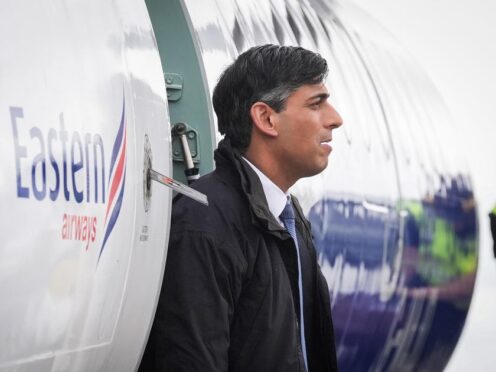
A Conservative defence minister ruled out restoring national service two days before the Tories announced they would introduce it if they win the General Election.
Andrew Murrison said there were “no plans” to bring in the policy, saying it could damage morale if “potentially unwilling” recruits were forced to serve alongside armed forces personnel.
On Saturday, Rishi Sunak announced plans to require 18-year-olds to perform a form of “mandatory” national service, either through a 12-month military placement or volunteer work.

The armed forces option would be selective – with some 30,000 placements for “the brightest and best”, the Conservatives suggested.
Under the proposals, all other 18-year-olds would work one weekend a month for a year to help their community, which could include organisations such as fire, police, and NHS services or charities tackling loneliness and supporting elderly people.
The Prime Minister said the programme would help unite society in an “increasingly uncertain world” and give young people a “shared sense of purpose”.
But just two days before the announcement, Mr Murrison, who served for 18 years as a medical officer in the Royal Navy and was recalled as a reservist for a six-month tour of duty in Iraq during the war, expressed opposition to any restoration of national service.
In a statement on behalf of the Government responding to a written parliamentary question published on Thursday, after Mr Sunak had called a July 4 election, the minister said: “If potentially unwilling national service recruits were to be obliged to serve alongside the professional men and women of our armed forces, it could damage morale, recruitment and retention and would consume professional military and naval resources.
“If, on the other hand, national service recruits were kept in separate units, it would be difficult to find a proper and meaningful role for them, potentially harming motivation and discipline.
“For all these reasons, there are no current plans for the restoration of any form of national service.”
The Tories said that teenagers who sign up for placement in the forces would “learn and take part in logistics, cyber security, procurement or civil response operations” as part of the newly announced national service proposals.
The Conservatives said they would establish a royal commission bringing in expertise from across the military and civil society to establish the details of what they described as the “bold” national service programme.
The party said this commission would be tasked with submitting a proposal for ensuring the first pilot opens for applications in September 2025.
National service takes its name from the compulsory military training men aged 17 to 21 had to undertake in the UK between 1949 and 1960.
In postwar Britain, it involved 19 months of training in the armed forces and four years spent on a reserve list. Home Secretary James Cleverly said the new scheme would not force anyone to do military training or face combat.
Critics from across the political divide have dismissed the plans as unserious, and military figures have questioned how they would benefit the armed forces, citing a more pressing need for better funding.
Speaking on GB News, former Conservative defence secretary Michael Portillo said the plans seemed to have been produced “like a rabbit it out of a hat”, while Lord Dannatt, former chief of the general staff, told the Guardian they were “bonkers.”
The Tories estimate the programme will cost £2.5 billion a year by the end of the decade and plans to fund £1 billion through plans to “crack down on tax avoidance and evasion”.
The remaining £1.5 billion will be paid for with money previously used for the UK Shared Prosperity Fund (UKSPF), a key part of the Levelling Up agenda, which supports local charities and community groups, the Tories said.
The Conservative Party has been contacted for comment.
Labour’s shadow defence secretary John Healey said: “The Conservative’s election gambit on compulsory national service is an undeliverable plan and a distraction from their failures in defence over the last 14 years.”

Enjoy the convenience of having The Sunday Post delivered as a digital ePaper straight to your smartphone, tablet or computer.
Subscribe for only £5.49 a month and enjoy all the benefits of the printed paper as a digital replica.
Subscribe